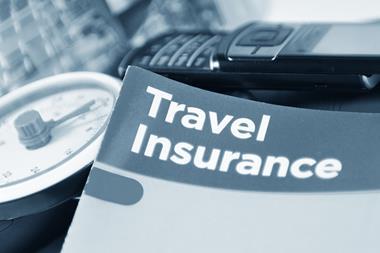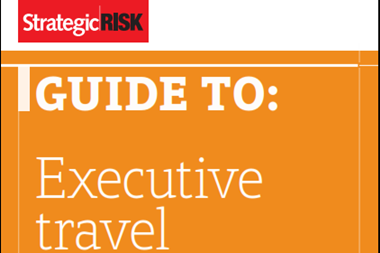Foreign business travel is no holiday, so be prepared for all eventualities

Few companies seem to be aware of the risks or their obligations to an employee sent abroad. From medical emergencies to loss of intellectual property, there need to be plans in place
Most business trips end without mishap, give or take the occasional airport delay or other minor irritant. But when they go wrong, they can go horribly wrong.
The files of insurers are full of accounts of businesspeople who have run into trouble in a foreign clime. To take just medical assistance, one UK company alone – Healix International, which provides medical and security services for business travellers – went to the rescue no fewer than 350,000 times a year.
And last year insurer AIG mounted nearly 2,500 medical evacuation flights worldwide through its Travel Guard subsidiary, out of a total of 60,000 “medical situations” that it handled. Other firms report similar levels of activity as the number of business trips rises, bringing with it a proportionate number of risks for executive travellers.
The cost of a medevac flight starts at about £15,000 and few private aviation companies will even consider sending an aircraft without guarantee of payment.
Sudden illness aside, the pitfalls awaiting business travellers grow all the time. Loss of valuable intellectual property is surprisingly common when laptops, phones or other electronic devices are stolen or when important documents are left lying around a hotel room and photographed by cleaning or other staff working for criminal gangs.
“Sensitive information should never be left in hotel rooms where local police and intelligence services have easy access,” warns US security specialists the Ackermann group. “They can steal, photograph and return documents within a few minutes without arousing your suspicion.”
Car accidents, especially in rentals, often cause financial as well as physical damage. Accidents frequently result in high costs for material damage under excess insurance clauses, in litigation, and in stress that distracts the executive traveller from the job in hand. “Do not use rental cars, because you may be subjected to exorbitant fines and even detention for minor traffic offences and accidents,” adds an Ackermann research paper.
Stolen or lost passports are almost routine and invariably entail delays in finding replacements through embassies. Similarly, stolen credit cards or wallets may leave uninsured travellers stranded, unable to pay their bills and generally vulnerable.
Identity theft is also on the rise. Indeed it’s common enough for some companies such as TravelAXIS to offer insurance against it. Skilled criminal operators can quickly build up a profile based on a stolen passport, airline ticket, credit card, driver’s licence or wallet containing a few scraps of personal information. Mobile phones often contain a wealth of personal data.
As AIG Europe’s senior vice president and head of group accident and health insurances Guy Wilson points out, such risks impose important obligations on employers.
One of the first firms to do so, AIG provides pre-travel preparation through its Travel Angel site that walks prospective business travellers through some of the pitfalls they may face. “Travel Angel is a useful education but it doesn’t exonerate employers from duty of care,” says Wilson. “They have an obligation to provide pre-travel training.”
This is especially true of longterm postings. Healix International managing director Scott Sunderman says: “The big challenge that we think businesses face is actually being able to manage the duty of care process before an employee heads abroad.” And that starts with a pre-departure medical.
Of course, there is no guarantee that an executive traveller will not fall ill when away from home, but a thorough physical examination will give confidence or alert the employee to unsuspected, underlying problems. Typically, it should screen for lung function, hearing, vision, height and weight, body mass index, high blood pressure, and for liver and kidney function among other things through a variety of blood tests.
“It’s not just a question of ensuring the destination is safe and employees know who to call in case of emergency,” adds Sunderman. “Employers need to be certain their workers are healthy enough to even make the trip in the first place.”
A heads-up before departure should be country-specific, say insurers. Medication – or, rather, lack of – is a frequent issue. For example, it’s not uncommon for long-term medicines to be completely unavailable in China and Far East countries, so foreign-posted staff need to be aware of what alternatives, if any, they can use safely.




















1 Readers' comment